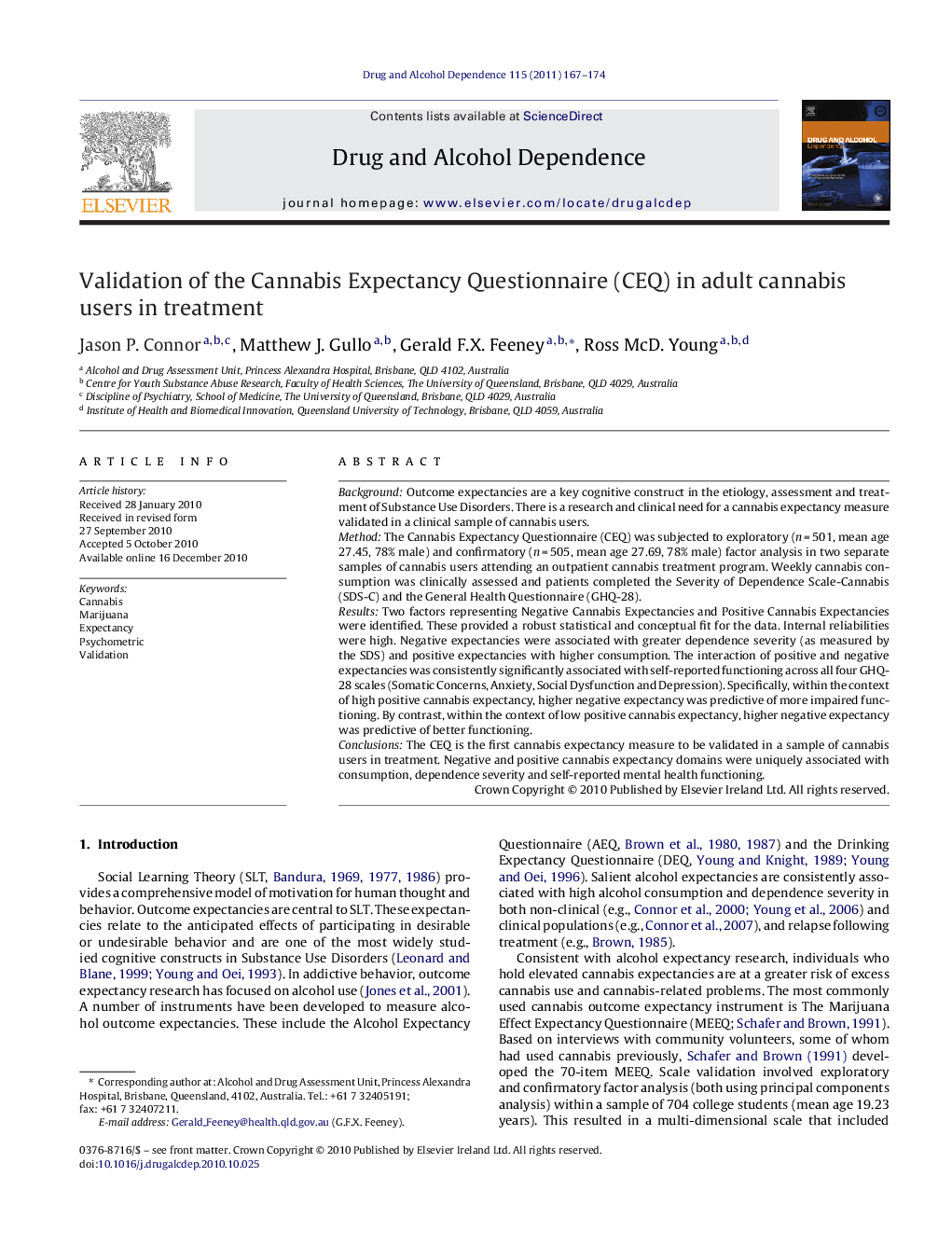| Article ID | Journal | Published Year | Pages | File Type |
|---|---|---|---|---|
| 1070362 | Drug and Alcohol Dependence | 2011 | 8 Pages |
BackgroundOutcome expectancies are a key cognitive construct in the etiology, assessment and treatment of Substance Use Disorders. There is a research and clinical need for a cannabis expectancy measure validated in a clinical sample of cannabis users.MethodThe Cannabis Expectancy Questionnaire (CEQ) was subjected to exploratory (n = 501, mean age 27.45, 78% male) and confirmatory (n = 505, mean age 27.69, 78% male) factor analysis in two separate samples of cannabis users attending an outpatient cannabis treatment program. Weekly cannabis consumption was clinically assessed and patients completed the Severity of Dependence Scale-Cannabis (SDS-C) and the General Health Questionnaire (GHQ-28).ResultsTwo factors representing Negative Cannabis Expectancies and Positive Cannabis Expectancies were identified. These provided a robust statistical and conceptual fit for the data. Internal reliabilities were high. Negative expectancies were associated with greater dependence severity (as measured by the SDS) and positive expectancies with higher consumption. The interaction of positive and negative expectancies was consistently significantly associated with self-reported functioning across all four GHQ-28 scales (Somatic Concerns, Anxiety, Social Dysfunction and Depression). Specifically, within the context of high positive cannabis expectancy, higher negative expectancy was predictive of more impaired functioning. By contrast, within the context of low positive cannabis expectancy, higher negative expectancy was predictive of better functioning.ConclusionsThe CEQ is the first cannabis expectancy measure to be validated in a sample of cannabis users in treatment. Negative and positive cannabis expectancy domains were uniquely associated with consumption, dependence severity and self-reported mental health functioning.
